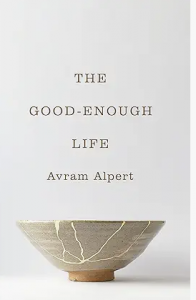I’m still reading through the slightly random pile mentioned in my previous post, and the latest has been The Good-Enough Life by Avram Alpert. As the author of a book called The Economics of Enough, I thought this one would be interesting. It threw me at the start by spending quite some pages on the difference between ‘great’ and ‘good-enough’ and why these terms don’t mean what everyone thinks they mean. This is not a wonderful writing tactic. (Of course, economists use terms that mean something different to other people, like rational, efficient, capital etc but tend not to bother explaining the distinctive disciplinary meaning.)
Anyway, what I took from the book in the end was an argument about the pernicious influence of positional goods (following Fred Hirsch’s classic work The Social Limits to Growth – ironically surprisingly highly priced) in the unequal capitalist system western economies have now, combined with advice about how to opt out of the rat race on a personal level, perhaps through religion – the author seems to be a Buddhist. This makes it a contrast to authors like Robert Frank who advocate societal action – taxing positional goods. It has a nice counter-argument to the ‘get as rich as you can then give (some) money away’ perspective; not only would this make us think well of the robber barons of the early 20th century, it also ignores the negative externalities arising from some individuals getting as rich as ever they can. But on the whole this is a book about individual mindset more than policy proposals.
It does have a lovely cover. I like the kintsugi metaphor.

